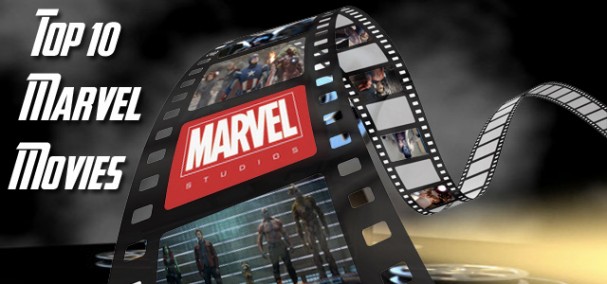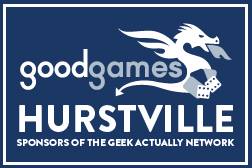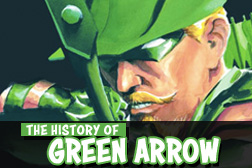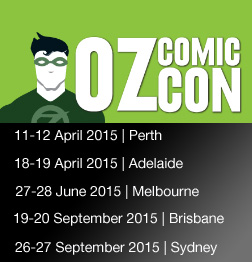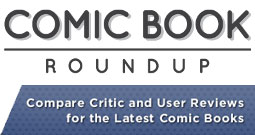We rank our favourite movies based on Marvel properties, putting aside studio divides and anti-mutant sentiments. Prepare for controversial choices and fights on the discussion boards.
With Guardians of the Galaxy, Marvel marks its tenth film since 2008 under the Marvel Cinematic Universe banner, a cohesive set of films that stand up individually but interconnect to form a wider tale. The multi-billion dollar franchise has done well for itself, especially since moving to Disney, but these aren’t the only Marvel films. Since the 1990s (earlier if you count 1986’s gloriously wonderfully bad Howard the Duck), Marvel has also been releasing licensed theatrical features through New Line, Sony and Fox. Some of these have been disasters, while others have been outstanding examples of how to bring a comic book to life. Here’s our current Top 10, subject to change whenever Joss Whedon releases his next epic or a convincing argument is made as to why Man-Thing needs a place on this list.
WARNING: Some film descriptions may contain spoilers. The writer’s opinions (and they are only opinions) may also induce angst and fist-shaking. You have been warned.
10. Blade (1998)
While it could be easily argued that Guillermo Del Toro’s stylish sequel is the superior film, director Stephen Norrington (remember him?) helped launch the modern Marvel movie. Before X-Men (2000), Marvel tested the waters with one of their lesser-known characters in a genre familiar to audiences (vampires), and the results were a surprise hit. Based on Marvel’s Tomb of Dracula comics (1973) , Wesley Snipes brought the character into the late 1990s, imbuing him with pre-Matrix leather-coated cool. With impressive effects for its day, it was the first Marvel film to get a wide theatrical release since Howard the Duck (1986). The success of the film paved the way for more adaptations, including X-Men, Spider-Man (2002) and several direct sequels. Yet perhaps the longest lasting legacy of this film is David S. Goyer: the man who penned the first modern Marvel film went on to reshape the Batman franchise (penning Batman Begins) and is now ironically helming the DC Cinematic Universe.
9. Iron Man 3 (2013)
A divisive choice amongst even the most ardent of Marvel Studios fans, primarily due to the dramatic (or should we say comedic) liberties writer/director Shane Black took with one of Marvel’s most iconic villains. Iron Man 3 had the almost impossible task of following Marvel’s The Avengers, the most financially successful comic book movie of all time. The dilemma facing director Black was always going to be one of escalation, with the series of Marvel films leading up to The Avengers taking us deeper into their comic book world. Following a similar narrative structure as Black and Downey Jr’s own Kiss Kiss Bang Bang (one of the main criticisms levelled at the film from its detractors), it may be a shock to the system that Stark spends a fair amount of time out of the armour. The film segues into detective story territory, making a pleasing union of genres and a willingness on Marvel’s part to be bolder with its superhero films. The “house party” at the film’s climax is the action pay-off fans were expecting, and all issues with the Mandarin were forgiven in Drew Pearce’s All Hail the King One-Shot short film. The proof was ultimately in the pudding when Iron Man 3 clocked an impressive $1.2 billion worldwide, almost matching The Avengers for box-office takings.
8. Thor: The Dark World (2013)
2011’s Thor was a bit of a gamble for the studio, and worked largely because of the film’s willingness to accept the ridiculousness of a “Norse God” wandering around small-town America. Taking inspiration from the incredible comic book visions of everyone from writer Walt Simonson through to the current cosmic ballet of the Marvel Universe, this was a Marvel universe we had not seen before on screen. In Phase 2, the film series had finally reached a point where it could confidently mix in the rich and often convoluted details of the source material for a fully prepped and initiated movie audience. Yet at the same time, director Alan Taylor took his experience from TV’s Game of Thrones and made Asgard itself a grounded and real place, far from the austere throne rooms of the first film. Thor: The Dark World is a perfect example of the progression of a series. As the cinematic universe steered towards Guardians of the Galaxy, this film built upon familiar elements while taking chances that quite literally shoots the franchise into the stars.
7. X-Men: Days of Future Past (2014)
Liberties were taken, characters were slightly changed , but if ever there was a film that the X-Men franchise had been building to it was this one. After the misguided X-Men: The Last Stand (2006), Fox appeared to throw up their hands and attempt to reboot the whole shebang with a new, younger cast in X-Men: First Class (2011). That film was not without its own issues, but it was always going to be hamstrung by its vain efforts to maintain some kind of continuity with the previous films. Taking one of Marvel’s most iconic stories (told way back in 1981’s Uncanny X-Men #141-142), it brought the two separate casts together in one story, with Wolverine acting as their intermediary. Gone was the staginess of Bryan Singer’s first X-Men effort, with X-Men: Days of Future Past being the sprawling, emotional and visually spectacular film that Chris Claremont’s broad brushes always promised.
6. Iron Man (2008)
If the top end of this list wasn’t so strong, then this film should be even higher. While Blade may have opened the door to more Marvel films back in the late 1990s, it was producer Kevin Feige, director Jon Favreau and star Robert Downey Jr. who made them monolithic. It’s actually hard to believe that it was only 6 years ago that Marvel began their journey, one that would lead to a series of films mapped all the way out to 2028. The character of Iron Man was largely unknown to the general public at the time of release, but Downey Jr. and his character has rapidly become the centrepiece of the whole saga. Of all the “risks” that the studio has taken over the years, this was the first gamble, and one that could have sunk the whole deal. Instead it was something that audiences didn’t expect: funny, irreverent, action-packed and featuring a star-making comeback performance from Downey Jr. It’s No. 6 on this list, but it will forever be Number One in our hearts. Except for the one that actually is Number One, which is both.

5. X2 (2003)
2000’s X-Men was met with mixed reactions by some fans. While it was a solid action film, introducing beloved characters onto the big screen for the first time, you could almost feel the compromises Bryan Singer had to make. This was not the case with the sequel, with Singer plunging claw-deep into comics lore. However, even with the Wolverine berserker action that almost scored the flick a solid R-rating or Brian Cox as the driven and maniacal William Stryker, it was Alan Cumming as the fan-favourite Nightcrawler that scored the biggest points. The opening sequence, in which the blue elf bamfs his way into the White House and takes on dozens of guards, will forever remain one of the touchstones of modern action staging. Perhaps the only disappointing thing about this film is the ending, which promises the fabled “Phoenix Saga”, but the third film never delivered on it.
4. The Avengers (2012)
It’s almost unfair to allow The Avengers on a list with other superhero films. Backed by Iron Man, The Incredible Hulk (2008), Iron Man 2 (2010), Thor (2011) and Captain America: The First Avenger (2011), it was the culmination of years of world-building. Coupled with this was the fan frenzy around über-geek writer/director Joss Whedon, and audiences had no choice but to be reduced to mewling quims in the wake of Earth’s mightiest heroes. It wasn’t simply the gathering of the heroes for the first time on-screen, but the casual way Whedon injected humour – and more importantly, human drama – into the biggest blockbuster of the last few years. It wasn’t without its hiccups: a somewhat flat opening and a complete lack of an idea of what to do with Hawkeye (beyond making him a villain) are some of the quibbles, but it was absolute genius using Loki (Tom Hiddleston) and an alien invasion to pull this team together. We challenge any fan not to burst into tears of joy/stand up and applaud during that 360-degree shot of the Avengers assembling. Raking in over $1.5 billion at the box-office, it remains Marvel’s most financially successful film.

3. Spider-Man 2 (2004)
Sam Raimi’s Spider-Man (2002) had convincing brought the webhead to life on the big screen for the first time, and its massive success would naturally mean a sequel. It didn’t have to be this good. Right out of the gate, the sequel got just about everything right. No longer burdened by having to retell an origin story that the world already knew, Peter Parker (Tobey Maguire) could go head-to-head with Doctor Octopus, played with gleeful malevolence by Alfred Molina. It’s Academy Award-winning visual effects saw countless classic action scenes, the most spectacular of which sees Spider-Man stopping a runaway train before the track ends. Yet more than anything, it’s the humans that inhabit the film that give Raimi’s second outing the gravitas of being one of the best superhero films around.
2. Captain America: The Winter Soldier (2014)
Earlier in the year, we claimed that Captain America: The Winter Soldier was “the best Marvel film so far”, and we stand by that. It’s just that our Number One pick came out later. From the opening shots, the film slips into the comfort centres of our brains as easily its hero cuts through bad guys. Arrested Development and Community directors Joe and Anthony Russo don’t hold back on the action, filling every inch of the screen with images that leap straight out of artist Steve Epting’s pen. Happily being Avengers 1.5, this sequel successfully continues the pattern of escalation present since the end of Phase One, and manages to deliver something even bigger. There’s martial arts, car chases, aerial pursuits and inventive explosions – and that’s just the first act. Christopher Markus and Stephen McFeely’s script builds upon the characterisations of Captain America: The First Avenger, transplanting that same scrawny kid who didn’t like bullies into a more technologically advanced age. The dynamic is a fascinating one, with the script quite boldly playing with the headline ripping notion of the powers-that-be taking liberties with our liberties.It also directly addresses the idea of what powerful organisations do with their influence during times of great fear, not just in the wider plot but within the interpersonal relationships as well.
1. Guardians of the Galaxy (2014)
Long time readers and listeners of Behind the Panels (or people who follow Richard on Twitter) will know that we might be a little nuts for this film. There are some comics that are just made for the big screen, and Guardians of the Galaxy pops straight out of the panels. A crazy concept pays off in spades as the latest superhero team to join the big leagues shows the rest how it’s done. It is hard to imagine a more perfect comic adaptation, or a straight-up more enjoyable film, than this. Like watching Star Wars or Raiders of the Lost Ark for the first time, it’s immediately obvious that Guardians of the Galaxy is something special. Fans of the existing comics will immediately be presented with something that is wholly unique, but entirely and comfortingly familiar as well. Guardians of the Galaxy is one of those rare beasts that confidently lifts material from the comic book source, principally the works of Keith Giffen, Dan Abnett and Andy Lanning, and never feels the need to dumb it down or explain it to a mainstream audience. This is not to say it is catered only to fans, and indeed it’s quite the opposite case. Co-writer/director James Gunn and his colleagues recognise the strength of the source material, and trust in audiences to simply “get it” if it’s presented in just the right way. The boldest move in the Marvel Cinematic Universe is also the most joyous, neatly showing the rest of the galaxy how it’s done. Move over Avengers, the Guardians have got it all under control.
Agree or disagree? Got a comment? Start a conversation below, or take it with you on Behind the Panel’s Facebook and Twitter!
If you are an iTunes user, subscribe to our weekly podcast free here and please leave us feedback. That’s how we get more attention on the Interwebs!

